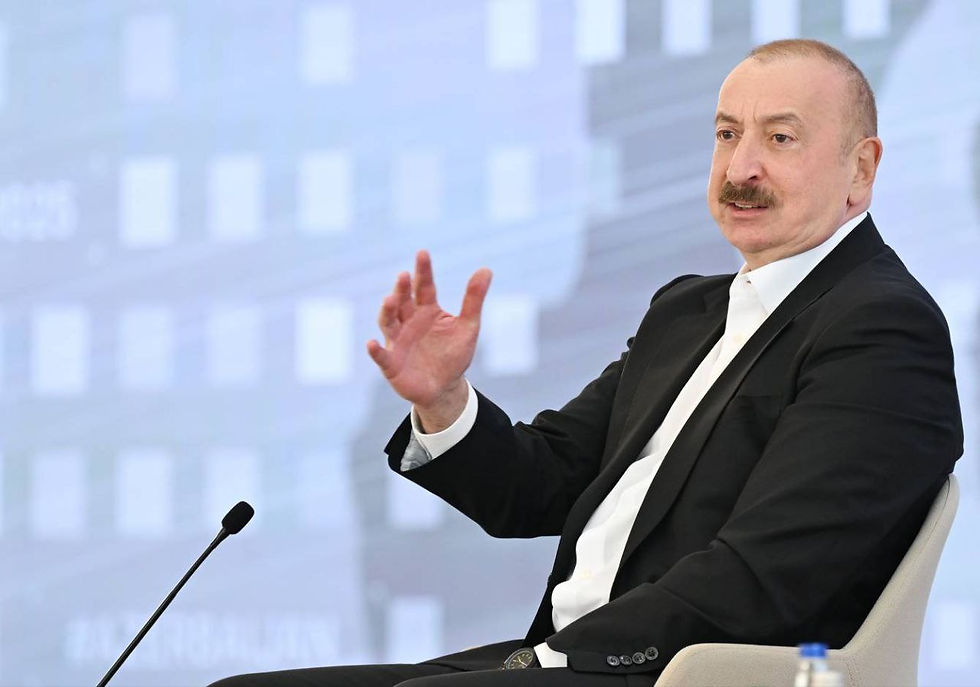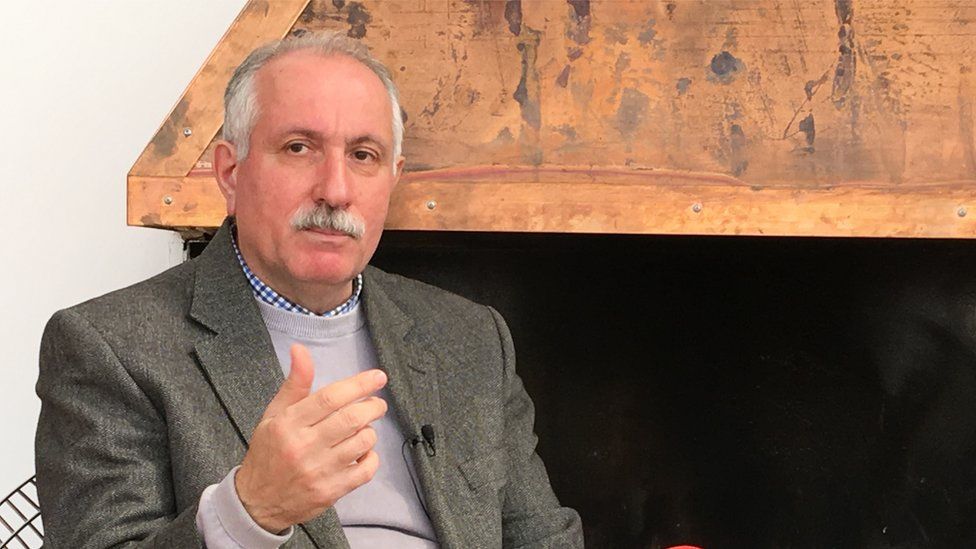Ukraine's Humanitarian Crisis Deepens Amidst Peace Talk Efforts and War Crime Allegations
- Obyektiv Media
- Jul 22, 2025
- 5 min read
Updated: Aug 2, 2025

As the full-scale war in Ukraine continues, a complex picture emerges of escalating humanitarian crises, persistent allegations of war crimes, and renewed, albeit fragile, diplomatic overtures. While Ukraine significantly boosts its domestic weapons production to defend its territory, the human cost of the conflict, particularly the plight of displaced and forcibly transferred civilians, remains stark.
Since Russia's full-scale invasion in February 2022, millions of Ukrainians have been displaced, and the conflict has given rise to severe humanitarian challenges. One of the most alarming aspects highlighted by recent reports is the alleged forced transfer and "re-education" of Ukrainian children into Russian territory.
Earlier this month, the European Court of Human Rights (ECHR) accused Russia of systematic human rights violations, including the forced deportation of Ukrainian children. Further compounding these accusations, a new report by the global think tank "Globsec" asserts that Russia's actions constitute "one of the most targeted and destructive attacks on civilian populations in modern European history," aiming to "steal" Ukraine's future by undermining its demographic sustainability.
"Russia's weaponization of population transfers and child deportations... are key elements of the Kremlin's hybrid warfare strategy designed to undermine Ukraine's demographic sustainability in the ongoing war," stated Megan Gittos, a researcher at Globsec and author of the report presented at the Globsec Forum in June 2025.
The International Criminal Court (ICC) has taken a strong stance on these allegations, issuing arrest warrants in March 2023 for Russian President Vladimir Putin and Russia's Commissioner for Children's Rights, Maria Lvova-Belova, holding them responsible for the war crime of unlawful deportation and transfer of children.
Amidst these grave concerns, new developments unfold on multiple fronts:
Humanitarian Protests at the Border: On July 12, former Ukrainian citizens expelled from Russia protested at the Verkhniy Lars checkpoint on the Russia-Georgia border. Trapped in a buffer zone basement, approximately 60-70 individuals ascended to protest against Georgian border service employees. They demanded access to the Duty Free zone for basic necessities like water, citing insufficient humanitarian aid from the Red Cross. The protestors, some awaiting deportation to Ukraine, also called for separate rooms for healthy individuals and those with tuberculosis, expressing that they are "tired of the cruel treatment." Georgia, for its part, is reportedly denying entry to former prisoners, deeming them a "threat to national security."
Ukraine's Defense Production Soars: Despite the ongoing challenges, Ukraine is significantly ramping up its domestic weapons production. According to Ukrainian Defense Minister Denys Shmyhal, weapons production has increased 35-fold since the start of the full-scale war, with no plans to slow down. Shmyhal noted that Ukrainian weapons currently account for 40% of the equipment at the front, with a goal to reach 50%. On July 18, President Volodymyr Zelenskyy met with Shmyhal, instructing him to urgently conclude contracts for unmanned aerial vehicles for the Defense Forces.
Renewed Peace Talk Efforts: Ukraine has proposed a new round of peace talks with Russia for the upcoming week. President Volodymyr Zelenskyy announced that Kyiv sent a proposal to Moscow for these discussions, emphasizing that "everything must be done to achieve a ceasefire." Zelenskyy reiterated his readiness for a personal meeting with his Russian counterpart, stating, "A meeting at the leader level is necessary to ensure genuine and lasting peace." The new head of Ukraine's National Security and Defense Council, Rustem Umerov, sent the proposal to Moscow.
Previous direct peace talks in Istanbul in May and early June resulted in agreements only on prisoner exchanges and the return of deceased bodies, failing to achieve a ceasefire. Kremlin spokesperson Dmitry Peskov, in an interview aired on Russian state television on July 20, stated that Putin is ready to move towards a peaceful settlement but stressed that Moscow's primary goal remains achieving the objectives set at the beginning of the invasion. These objectives include demands for the Donetsk, Luhansk, Zaporizhzhia, and Kherson regions, and strict limitations on Ukraine's armed forces and foreign military cooperation.
The human stories behind the statistics are particularly harrowing. Ksenia Koldina, who was forcibly taken to Russia with her younger brother from Vovchansk, described her experience as "ideological brainwashing." She recounted being forced to attend "Conversations about Important Things" lessons, which she called "popular Russian propaganda," and singing the Russian national anthem. Koldina stated that teachers and college administration persistently tried to persuade her to obtain Russian citizenship, offering money and housing, which she refused.
"The main thing for us is to achieve our goals. Our goals are clear," Peskov noted, referring to Russia's objectives.
According to the "Bring Kids Back UA" initiative, approximately 19,546 Ukrainian children have been deported to Russia since 2022, with only 1,399 returned. Russia is also accused of changing children's names to hinder their return.
Mariam Lambert, co-founder of the "Emile Foundation," described the pressure on Ukrainian children in Russia as "a deliberate and organized crime." She told RFE/RL, "Children in Ukraine become Russia's target, with the aim of completely erasing their identity... The whole purpose is to form a new generation in Russia. And this is a crime according to the Geneva Convention."
Dmytro Lubinets, Ukraine's Ombudsman, echoed these concerns, stating that Russia avoids sharing information about Ukrainian children because they "fully understand that every returned child is a potential witness." Lubinets asserted that "the main purpose of the deportation of Ukrainian children is perfectly clear: to turn them into Russia's future soldiers." He added that their documents are changed, and they are forced to speak only Russian and present themselves as Russians.
Investigations by RFE/RL's Ukrainian Service's "Skhemy" project revealed Russia's use of the militaristic youth organization "Yunarmiya" in occupied territories to indoctrinate Ukrainian youth. Kateryna Rashevska, a lawyer from the "Regional Human Rights" Center, explained that "Yunarmiya" was specifically created for the "militarist re-education" of both Russian and Ukrainian children from occupied territories.
The emotional toll on families is immense. Tatyana, a mother attempting to retrieve her son from a camp in Crimea, was detained by Russian officials who accused her of working for Ukrainian intelligence. Ksenia Koldina also faced immense difficulty retrieving her 14-year-old brother, who had been "brainwashed" to believe that "Nazis were operating in Ukraine" and that he was unwanted there. After three hours of persuasion, her brother finally agreed to return, with his Russian foster mother allegedly telling them, "Go, go to your Ukraine, it will be Russia soon anyway."
While Ukraine demonstrates resilience in bolstering its defense capabilities and initiating new peace talks, the deeply concerning issue of forcibly transferred children underscores the profound humanitarian crisis at the heart of the conflict. Ukraine has made the return of these children a key topic in any potential peace negotiations. The testimonies of those affected highlight the urgent need for international action and accountability, as the future of a generation of Ukrainian children hangs in the balance.



Comments